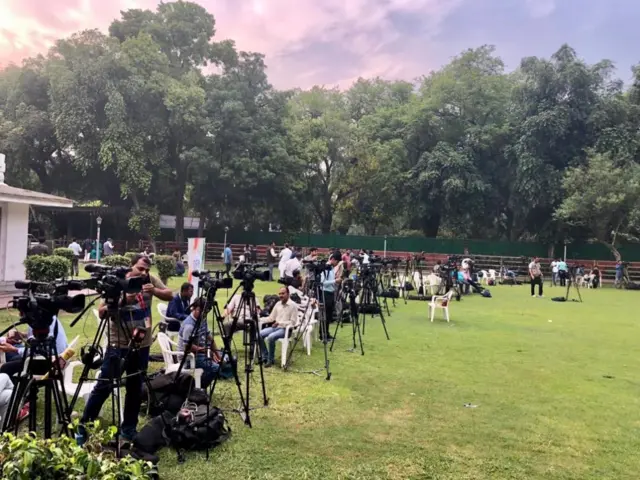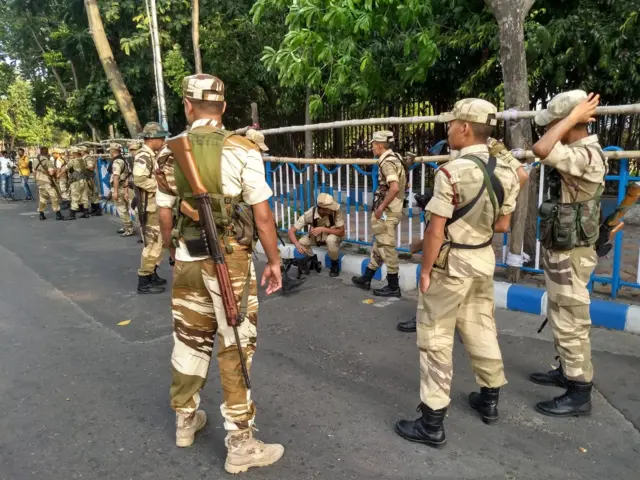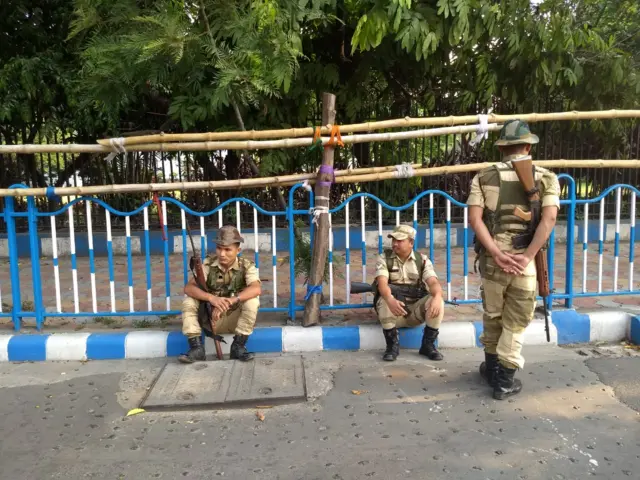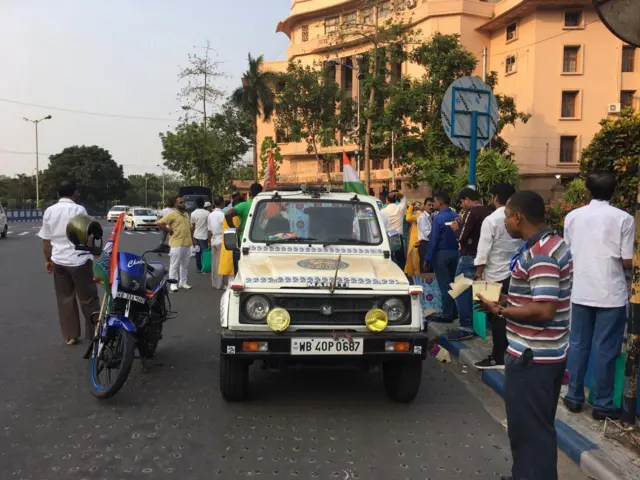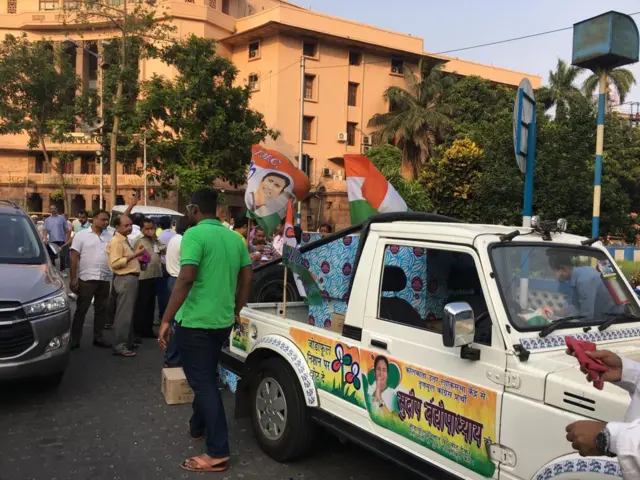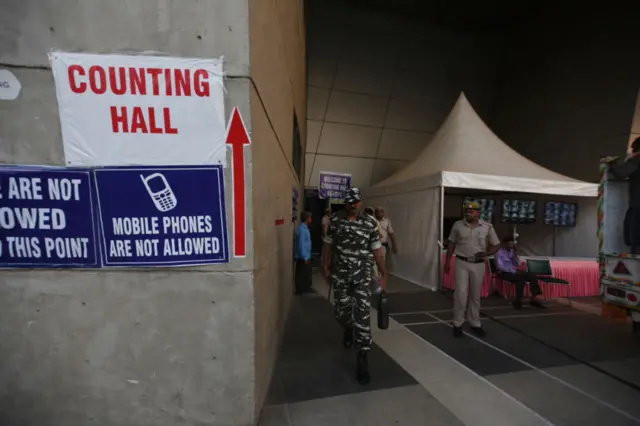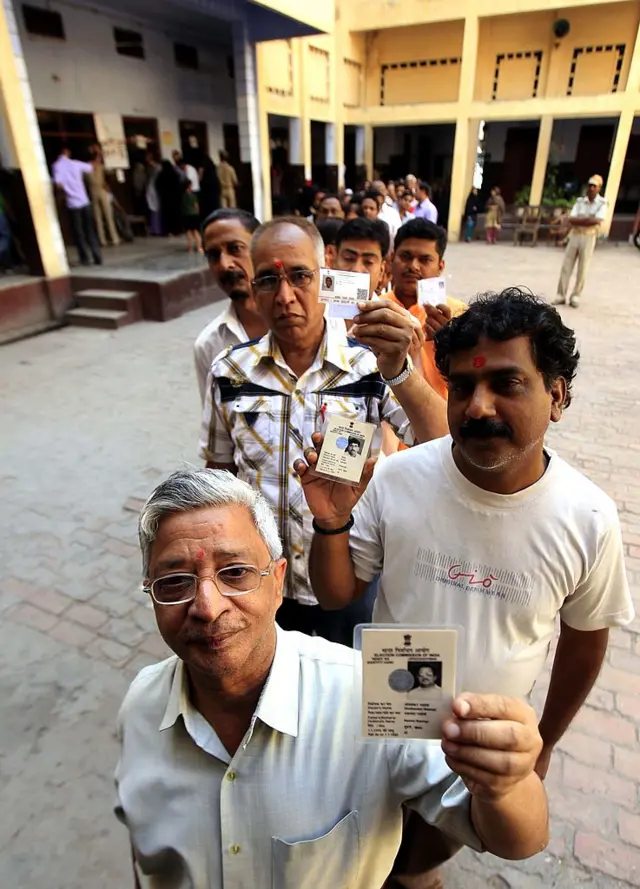How do you count hundreds of millions of votes?published at 03:02 BST 23 May 2019
India had 900 million eligible voters and though all of them didn’t participate in this election, there’s still a LOT of votes to be counted!
So how does it work?
First, the Electronic Voting Machines or EVMs which were used to cast votes are brought out from secure rooms and unsealed. They are then individually inspected by counting staff and agents. The process is overseen by a returning officer.
When he or she is satisfied a voting machine has not been tampered with, they press a button marked "result".
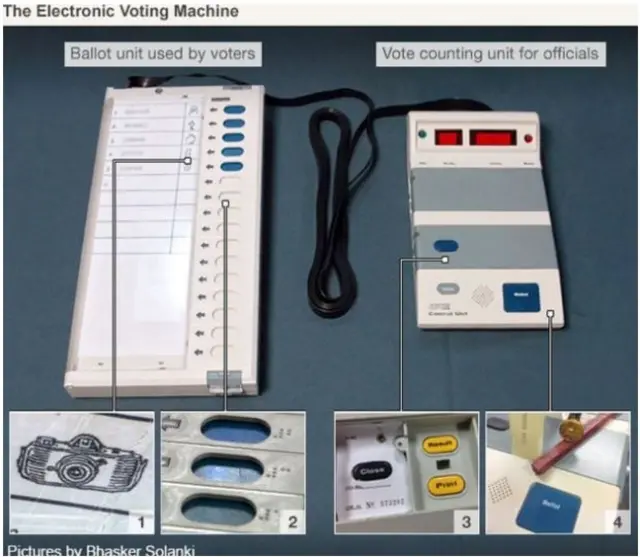
The officer assesses the total number of votes recorded against each candidate displayed on the control unit. If satisfied, he or she will sign the results sheet and share it with the election commission.
The EVMs are counted in batches, and results released in phases. The media report the results in real time as they emerge. Final results on the Election Commission website come later.
All the machines now have printers producing voter-verifiable paper audit trails to ensure transparency.
The authorities will tally the paper trail slips - which are kept in separate sealed boxes - and compare them with the electronic result provided by the machine in at least 5% of polling booths. Election officials say this process could delay final results by a couple of hours.
